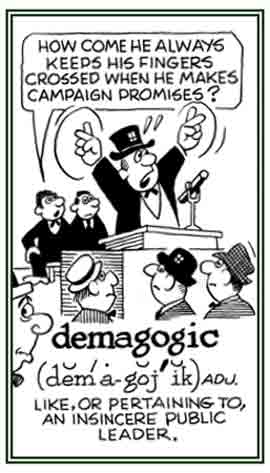-agogic-, -agogue, -agog, -agogic, -agoguery, -agogy
(Greek: usually a suffix meaning: lead, leading, leading forth, guide, guiding; bring, take; promoting, stimulating)
An ointment made of alum and honey that is used to promote stool: Dr. Simmons suggested that Jeff use caccagogue to be applied to the anus to stimulate or induce excretion.
cholagogic (adjective) (not comparable)
An obsolete term in medicine, relating to an agent that encourages or prompts the release of bile: Susan was feeling quite ill, and after getting a prescription from Dr. Schneider, she got a cholagogic substance at the pharmacy for stimulating the flow or the digestive fluids in her body.
A substance that promotes the flow of bile into the intestine: Cholagogue is used especially to promote the movement of bile from the gallbladder into the duodenum.
cholecystagogic (adjective), more cholecystagogic, most cholecystagogic
In medicine, referring to a substance that stimulates the activity of the gallbladder: When Jill went for her check-up at Dr. Smith's office, he said she had a cholecystagogic condition and needed some medication that would activate her gallbladder contractions.
In medicine, a substance that encourages the activity of the gallbladder: Jack got cholecystagogue at the pharmacy which was to promote the efficiency of the muscular sac attached to the liver until it was required for digestion.
A purging remedy: Dr. Snow gave June a prescription for copragogue, which was a cathartic medicine for her ailment and could be bought at a pharmacy.
The occlusion of a duct of the lacrimal gland: Linda's left eye was hurting her, so when she went to the ophthalmologist's for her appointment, she was told that she had a case of dacryagogatresia, or a closure or blockage of a tear duct, which could be treated.
dacryagogic (adjective), more dacryagogic, most dacryagogic
Concerning the stimulation of the production of tears: Dr. Thompson gave Meg some medicine to increase the dacryagogic activity in both of her eyes.
Am substance that activates tear formation: When Jane went to see her ophthalmologist, she was told that she needed some dacryagogue to stimulate the secretion of tears in her eyes because they were much too dry.
demagogic (adjective), more demagogic, most demagogic
1. Pertaining to a political leader who seeks support by appealing to popular desires and prejudices of the voters rather than by using rational arguments: People often experience the presentations of demagogic politicians who are running for various offices in governments around the world!
2. Etymology: from Greek demagogos which came from demos, "‘the people" + agogos, "leading"; from agein, "to lead".

© ALL rights are reserved.
Go to this Word A Day Revisited Index
2. Etymology: from Greek demagogos which came from demos, "‘the people" + agogos, "leading"; from agein, "to lead".
In ancient Greece and Rome, a reference to a leader or orator who supported the cause of the common people.

Go to this Word A Day Revisited Index
so you can see more of Mickey Bach's cartoons.
demagogical, demagogic, (adjective); more demagogical, most demagogical; more demagogic, most demagogic
Concerning a politician who panders to great numbers of people for egoistical purposes: The young politician seemed to be demagogical in that he appealed to the emotions of the crowds instead of presenting reasonable or rational arguments.
1. In a bad sense, a leader of a popular faction, or of the mob: A demagogue is a political agitator who appeals to the passions and prejudices of the mob in order to obtain power or to further his or her own interests.
2. In ancient or former times, a popular leader who represented the ordinary people: It is said that a demagog acted or spoke for the uncivilised mob of people.
2. In ancient or former times, a popular leader who represented the ordinary people: It is said that a demagog acted or spoke for the uncivilised mob of people.
Two examples of demagogs in past history were Adolf Hitler and Josef Stalin.
3. Etymology: from Greek demagogos which is from demos, "the people" + agogos, "leading".
1. The actions of a leader who acquires benefit by stiring up the emotions and prejudices of the folk: The demagoguery of Mr. Big's speeches was most agitative and manipulative and not based on facts or reasoning.
2. The use of persuasive language to appeal to the biases of the people: The usage of demagoguery by politicians creates fear and hatred among people, and is, sad to say, very common among politicians.
2. The use of persuasive language to appeal to the biases of the people: The usage of demagoguery by politicians creates fear and hatred among people, and is, sad to say, very common among politicians.
The methods or practices of a politician who strives for support by stressing the popular desires and prejudices of people: Mr. Smart didn't admire the practice of demagogy, but spoke about practical, logical, and factual aspects of his town. He was not interested in agitating the citizens at all.
A means, or process, of expelling a demon: In the story that Cindy read, the good fairy used a special medicine, a demonagogue, to drive out and purify the little fairy town of the evil spirits that had invaded their little paradise.


